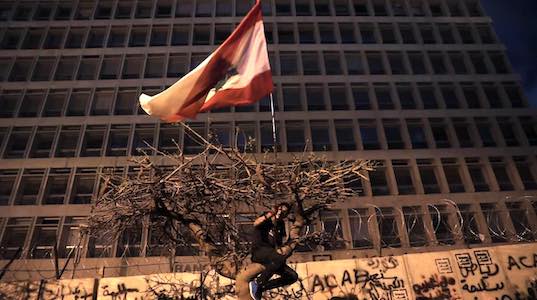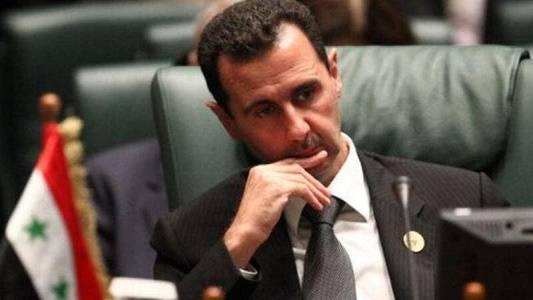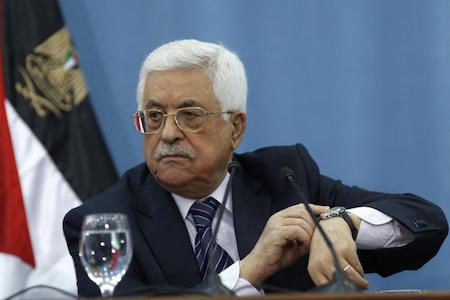 For Jordan, Israel’s war on Gaza is all but a foreign policy issue. It reverberates heavily on its domestic and foreign politics due to the stark contrast between the Jordanian deep support for the Palestinian cause and the state’s relation with Israel, compounded by its strong alliance with the United States. This article examines the variables that inform the Jordanian regime’s complex balancing act amid the ongoing regional crisis and how these impacted the outcome of the recent parliamentary elections. This article also argues that although the monarchy has managed to walk a thin line and avoid wider confrontations, the protracted crisis underscores an increasingly precarious balance that will test Jordan’s ability to deflect external and internal pressures in the face of prolonged conflict.
For Jordan, Israel’s war on Gaza is all but a foreign policy issue. It reverberates heavily on its domestic and foreign politics due to the stark contrast between the Jordanian deep support for the Palestinian cause and the state’s relation with Israel, compounded by its strong alliance with the United States. This article examines the variables that inform the Jordanian regime’s complex balancing act amid the ongoing regional crisis and how these impacted the outcome of the recent parliamentary elections. This article also argues that although the monarchy has managed to walk a thin line and avoid wider confrontations, the protracted crisis underscores an increasingly precarious balance that will test Jordan’s ability to deflect external and internal pressures in the face of prolonged conflict.

On October 7, 2023, President Biden declared his administration’s “rock-solid and unwavering support” to Israel. More than nine months into the Gaza war, his adherence to his initial promise is unquestionable. This article will examine US foreign policy vis-à-vis the war on Gaza, focusing on its prospective objectives and its implications on domestic, regional, and international levels. It will also argue that American foreign policy on the issue is primarily reactive rather than proactive.
 As the Russian invasion of Ukraine continues in full gear, contrary to the steadfast reactions of the western world, the regional responses from the Middle East paint a different picture. Having initially been caught off-guard with the intensifying tag between Russia and the west, most ‘heavyweight’ MENA countries have adopted a ‘sit tight and assess’ approach. Longstanding partners of the west are balancing their reactions in order to minimize the risks stemming from overtly picking sides in a conflict that they increasingly see as not their own. On the region’s eastern flank, Iran too, walks a thin line.
As the Russian invasion of Ukraine continues in full gear, contrary to the steadfast reactions of the western world, the regional responses from the Middle East paint a different picture. Having initially been caught off-guard with the intensifying tag between Russia and the west, most ‘heavyweight’ MENA countries have adopted a ‘sit tight and assess’ approach. Longstanding partners of the west are balancing their reactions in order to minimize the risks stemming from overtly picking sides in a conflict that they increasingly see as not their own. On the region’s eastern flank, Iran too, walks a thin line.
 As white smoke was coming out two years ago to signify the formation of a new Hariri government in Beirut, the dangers of an economic collapse, and protracted political and social instability were looming over the country. Now, as white smoke came up again with the formation of Najib Mikati’s government last September, several converging crises have brought the country to its knees. The galloping economic breakdown, precipitated by the effects of the COVID-19 pandemic and last year’s blast in Beirut’s port has created asphyxiating conditions that put Lebanon in completely uncharted waters.
As white smoke was coming out two years ago to signify the formation of a new Hariri government in Beirut, the dangers of an economic collapse, and protracted political and social instability were looming over the country. Now, as white smoke came up again with the formation of Najib Mikati’s government last September, several converging crises have brought the country to its knees. The galloping economic breakdown, precipitated by the effects of the COVID-19 pandemic and last year’s blast in Beirut’s port has created asphyxiating conditions that put Lebanon in completely uncharted waters.
 Despite the latest ceasefire in Idlib, tensions are once again rising across Syria. In the northwest, the high mobility in Idlib indicates that renewed fighting is rather a matter of timing, while in the south and east, escalating assassination campaigns in Daraa and Deir ez-Zor generate new dangerous dynamics. In central and eastern Syria, the resurgence of ISIS cells further exposes a severe security vacuum that opens way for intensive influence competition between the Kurds and the regime. Last but not least, the unprecedented economic crisis that face the country threatens to derail even the minimum stability enjoyed in Syria at the moment.
Despite the latest ceasefire in Idlib, tensions are once again rising across Syria. In the northwest, the high mobility in Idlib indicates that renewed fighting is rather a matter of timing, while in the south and east, escalating assassination campaigns in Daraa and Deir ez-Zor generate new dangerous dynamics. In central and eastern Syria, the resurgence of ISIS cells further exposes a severe security vacuum that opens way for intensive influence competition between the Kurds and the regime. Last but not least, the unprecedented economic crisis that face the country threatens to derail even the minimum stability enjoyed in Syria at the moment.
 Israel’s normalizing relations with various Arab countries brought the Palestinians once again before the bitter realization that time is working against them. It appears that this realization triggered a process of reconciliation among the Palestinians. Yet, will these efforts suffice to influence the course of the Palestinian Question within a rapidly changing regional environment?
Israel’s normalizing relations with various Arab countries brought the Palestinians once again before the bitter realization that time is working against them. It appears that this realization triggered a process of reconciliation among the Palestinians. Yet, will these efforts suffice to influence the course of the Palestinian Question within a rapidly changing regional environment?
 As the Syrian civil war nears its end, the regime’s imminent victory against the remaining opposition forces in Idlib tends to be overshadowed by several emerging issues that threaten to trigger a new circle of instability. In the meantime, irrespective of any outcome in the north, another ‘war’ still rages and will continue to rage in the country. The one between Iran, which struggles to recover from the assassination of General Qasem Soleimani, and Israel, which meticulously tries to fend off the former’s entrenchment in the country.
As the Syrian civil war nears its end, the regime’s imminent victory against the remaining opposition forces in Idlib tends to be overshadowed by several emerging issues that threaten to trigger a new circle of instability. In the meantime, irrespective of any outcome in the north, another ‘war’ still rages and will continue to rage in the country. The one between Iran, which struggles to recover from the assassination of General Qasem Soleimani, and Israel, which meticulously tries to fend off the former’s entrenchment in the country.
 Protests across Sudan are well into their fourth month, consistently defying President Omar al-Bashir’s suppressive response, as well as his superficial political appeasing efforts. That persistence, stemming from economic and political demands highly similar to those expressed in several Arab countries during the so-called “Arab Spring”, interestingly underscores a relevant continuity of the transformative dynamics that emerged back in 2011. In Sudan, similar peaceful revolts have twice -in 1964 and 1985- ended up in the collapse of military dictatorships. Nevertheless, despite the protesters’ determination, the existence of a particularly rigid pro-status quo regional political landscape further complicates the equation that could lead to actual political change.
Protests across Sudan are well into their fourth month, consistently defying President Omar al-Bashir’s suppressive response, as well as his superficial political appeasing efforts. That persistence, stemming from economic and political demands highly similar to those expressed in several Arab countries during the so-called “Arab Spring”, interestingly underscores a relevant continuity of the transformative dynamics that emerged back in 2011. In Sudan, similar peaceful revolts have twice -in 1964 and 1985- ended up in the collapse of military dictatorships. Nevertheless, despite the protesters’ determination, the existence of a particularly rigid pro-status quo regional political landscape further complicates the equation that could lead to actual political change.
 Following an eight-month-long political deadlock, a new Lebanese government was ultimately formed on January 31. Although many key politicians have retained their presence in the new administration, the reflection of last May’s national election results, and the dynamics generated thereof, is evident. PM Saad Hariri’s significant electoral losses were translated into gains for the Shi’i coalition that also includes Hezbollah. Domestically, the latter’s increased cabinet share indicates a political elevation, which in turn causes considerable anxiety to the West, Israel and the Gulf. More importantly though, its growing influence, if combined with other political forces, may as well impact significantly the country’s foreign policy vis-à-vis Syria
Following an eight-month-long political deadlock, a new Lebanese government was ultimately formed on January 31. Although many key politicians have retained their presence in the new administration, the reflection of last May’s national election results, and the dynamics generated thereof, is evident. PM Saad Hariri’s significant electoral losses were translated into gains for the Shi’i coalition that also includes Hezbollah. Domestically, the latter’s increased cabinet share indicates a political elevation, which in turn causes considerable anxiety to the West, Israel and the Gulf. More importantly though, its growing influence, if combined with other political forces, may as well impact significantly the country’s foreign policy vis-à-vis Syria
Το Κέντρο Μεσογειακών,Μεσανατολικών και Ισλαμικών Σπουδών φιλοξενεί πληθώρα διαφορετικών απόψεων στα πλαίσια του ελεύθερου ακαδημαϊκού διαλόγου. Οι απόψεις αυτές δεν αντανακλούν υποχρεωτικά τις απόψεις του Κέντρου. Η χρήση και αναπαραγωγή οπτικοακουστικού υλικού για τις ανάγκες της ιστοσελίδας του ΚΕΜΜΙΣ γίνεται για ενημερωτικούς, ακαδημαϊκούς και μη κερδοσκοπικούς σκοπούς κατά τα προβλεπόμενα του Νόμου 2121/1993 (ΦΕΚ Α' 25/4-3-1993) περί της προστασίας της πνευματικής ιδιοκτησίας, καθώς και του άρ.8 του Νόμου 2557/1997 (ΦΕΚ Α' 271/1997).

